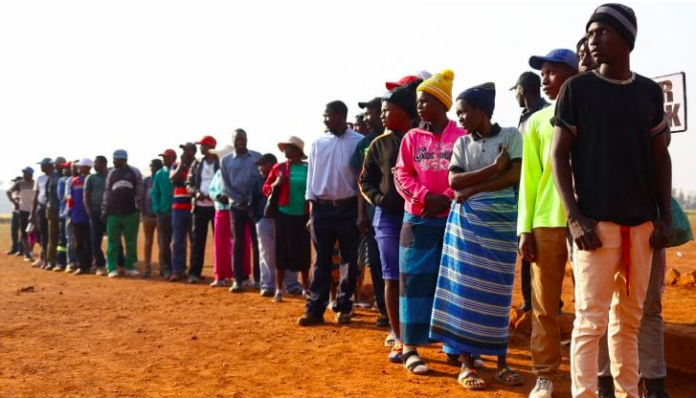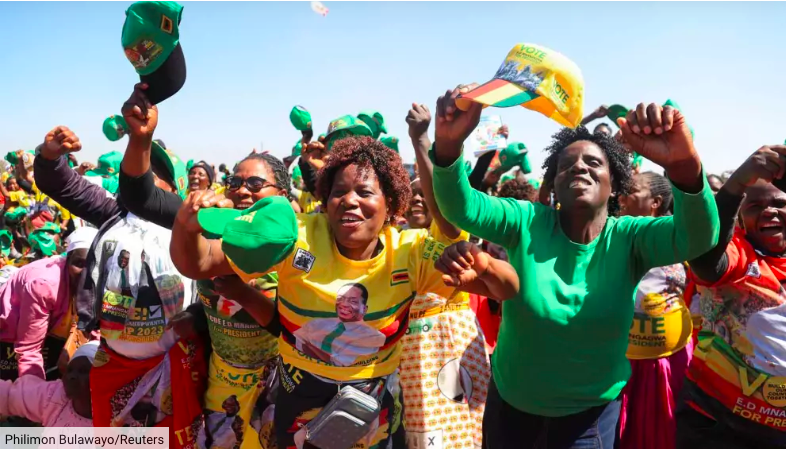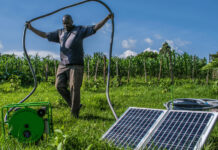
By Winnie Kamau
Nairobi, Kenya: Zimbabwe has extended voting in selected wards by a day after the late distribution of ballot papers delayed polling, according to a presidential decree issued late Wednesday this is according to media reports by Aljazeera.
The voters in Zimbabwe waited in queues for long with a hunger for change from the economic woes they have been facing and blaming it on the ruling of ZANU-PF which has been the ruling party.
According to Zimbabwean law, voting is supposed to take place within one day.
The presidential notice listed 40 wards it said were affected by the delays. Although the named areas make up less than 1% of the country’s 12,374 wards, they include 11 wards in the capital Harare, which has the highest number of registered voters.
According to a notice from President Emmerson Mnangagwa announcing the extra day, the affected wards are in three of Zimbabwe’s 10 provinces – opposition stronghold Harare, Mashonaland Central, where the ruling party is traditionally dominant, and Manicaland, which is a key battleground.
 Before going to the polls there were growing concerns of Internet shutdown in Zimbabwe. According to media reports by 10 Techbal showed data from the internet connectivity monitoring platform Netblocks, internet service has been throttled in Zimbabwe on the eve of the country’s general elections.
Before going to the polls there were growing concerns of Internet shutdown in Zimbabwe. According to media reports by 10 Techbal showed data from the internet connectivity monitoring platform Netblocks, internet service has been throttled in Zimbabwe on the eve of the country’s general elections.
The degradation has affected customers of leading internet service providers including NetOne, Econet, TelOne and Liquid. Mnangagwa is seeking re-election after a first term during which runaway inflation, currency shortages and sky-high unemployment left many Zimbabweans reliant on dollar remittances from relatives abroad to make ends meet.
“We are facing a system challenge and we are working towards restoring normalcy. Any inconvenience caused is sincerely regretted,” Econet told its customers.
According to Felicia Anthonio, campaign manager of #KeepItOn, an initiative by the non-profit organization Access Now, the Zimbabwean government has a recorded history of shutting off the internet during important national events.
“We are urging the government not to repeat its past habits and allow the people of Zimbabwe unfettered access to the internet to allow them to actively participate and ensure the process is transparent and fair,” she told NewzRoom Africa.
In February last year, Netblocks also reported significant internet throttling during a national demonstration by the Citizens Coalition For Change (CCC), one of the leading opposition parties in the country. The incident impacted multiple operators and limited users’ ability to live stream the events of the day.
In March, a new series of disruptions were registered amid further opposition demonstrations. Netblocks metrics confirmed that the disruptions occurred at the backbone which served each operator, and not at the cell towers due to congestion as claimed by government sources. Other times when the Zimbabwean government has throttled the internet include in 2020 ahead of planned protests and in 2019 during national demonstrations about increasing fuel prices.
Mnangagwa, 80, took over when longtime strongman Robert Mugabe was toppled in a 2017 military coup. He faces 10 other candidates, including his main challenger, lawyer and pastor Nelson Chamisa, 45, of the Citizens Coalition for Change.













